#judy review
Explore tagged Tumblr posts
Text
What I really like about 'High Potential' (besides Kaitlin Olson getting the spotlight) is it's finally a "genius" and/or crime-solving character who doesn't act like a cold, rude asshole. Well, unless she's confronting a cold, rude asshole. She's affected by crime scenes and upset families instead of being apathetic or annoyed.
It's not that hard to escape the strict Sherlock model. It shouldn't be this rare.
947 notes
·
View notes
Note
Tell me every reason you enjoy Zootopia enough to give it all the rewatches you do.
Every? Oh boy.
Good Story
Perfect Characters
Visual Appeal
Earnestness
Let me break it down.
1. Good Story
Zootopia’s main point is: “Try to make the world a better place by realizing we’re fundamentally the same.”
That’s a really good main point.
It has the benefit of being true. Right now our culture is super into “self-identification,” and this crazy contrast between, “I want to be able to identify as something special” and “Now that I know what categories I fit in, I can choose who’s ‘one of us’ and who’s ’not one of us.’” Okay well that sounds pretty and I’m sure it fulfills some emotional need at some point, but it’s actually super divisive, and self-serving, and it’s the seeds for all prejudices. Including racism.
Do we have differences in origins and experiences? Yes. Of course. Do we also have some fundamental things in common? Yes. Of course. Which truth are you going to give the highest priority to? If it’s “no, I’m a prey animal, I know exactly where I belong, that’s who I am, that’s how I dress, that’s my compass for how I interact with others” then you’re getting all your security from your “sense of self,” and being able to understand what that is…which is just a fancy way of saying “I’m all about me. My own perspective informs everything I do.”
Anyway. Zootopia’s message was super true.
And the coolest thing about it is that if only Judy were in the wrong, and the other half of the dynamic duo, Nick, was this open-minded, un-prejudiced guy…and she just hurts him and has to apologize…the movie’s message wouldn’t be as well-communicated.
They have their prejudices and their hurt-from-being-prejudiced-against in common!
They’re the same…because they’ve both felt what it’s like to be treated like they’re not “the same.”
Nick isn’t the only character being mistreated and written off because of his species. The whole first half of the movie is about Judy being mistreated and written off. They think she can’t be a cop because she’s little and cute and a prey-animal. They think Nick can’t be trustworthy because he’s sneaky and small and a predator.
So literally…if Judy represented one race, and Nick represented a completely different race…the movie would be saying that both those races are discriminated against. They even have discrimination in common. AND, if Nick represented men who people make assumptions about because he’s a man, and Judy represented women who people make assumptions about because she’s a woman—the movie would be saying that both those genders are falsely judged.
I mean. Wow. Right now, your movie is either pro-woman or pro-man. Right now, your movie is either BLM or white-supremacy. Everybody’s lining up on one side of the line or the other. Zootopia says, “it doesn’t matter what character you’re looking at, from the elephant that can’t remember anything to the two main characters—every single one of them has fundamental things in common, and one of those things is that they all live like they’re in their own special category. When actually, they’re all fundamentally the same.”
I don’t want to keep beating the dead horse. But I have a post somewhere that lists every background character and points out that each animal is the exact opposite of what you would assume they are based on their animal-stereotype. The otters are never shown being playful or snuggly, only traumatized and ferocious. The cheetah is fat and slow, not quick or even quick on the uptake. Etc.
Even if you look outside of characters—look at the sets. Look at the environments. The whole city is designed “for animals, by animals.” But it’s in neat little segments. The animals organize themselves by habitat. Of course, in one sense that’s practical—the polar bears can’t live in Sahara Square, etc. but the point is, by making Judy and Nick, the main characters, small animals, in a city where everything is built to accommodate by species—UGH this is so good—they have to figure out how to problem-solve in situations that weren’t made to accommodate them.

Little Rodentia? Judy has to avoid stepping on all the mice or knocking over their buildings. Parking tickets? She has to figure out how to jump to reach bigger animals’ windshields—or she inconveniences smaller animals because the tickets are all printed at the exact same size. Stuck in a cell? The guards didn’t think about the fact that small animals can fit down the pipes made to accommodate big animals.

Zootopia is a city advertised to be where all the animals can come together. But the way they do that is by trying to accommodate every species’ preferences. So then actually while they try to come together, everything from their cars to their districts remind them of their differences. The whole idea is that they prioritize the wrong truths. Yeah, mice can’t drive giraffe cars—but they still have “driving” in common. See?
And oh my word. Initially it was supposed to be a spy story. But they changed it to a buddy cop story. Why? Well because justice doesn’t discriminate. Or at least, it’s not supposed to. So then there’s another lens to look at the story’s main theme through.
It’s just that every layer, every perspective you look at the movie from, is just hammering that truth into you: “Try to make the world a better place by realizing we’re fundamentally the same.”
2. Perfect Characters
Every character is so well-thought-through in this movie, even the side characters. You get the feeling you could watch a whole movie based on the side characters, because that’s the amount of love and nuance built into them.
Look at the main ones, though. Bellwhether is supposed to be soft and a follower. She’s a sheep. Instead, she’s hard and bitter—and she’s a leader. A villainous leader, but a leader, nonetheless. Even as she tries to keep animals divided based on fear of their stereotypes, she’s not fitting her own stereotype. Her voice actress has this strained, half-hoarse, but sweet voice. Like you can tell that this character has spent a lot of time under pressure and trying to manage appearances. Appearing like she’s fine, and she can handle it—until you realize that the appearance she’s really managing is “the cultural fear-based identify of the city.” They dress her in plaid and flowers and she’s a farm animal, because that’s the kind of character Judy would be most likely to trust. But she still has green eyes, and jagged teeth, so that when she does start making evil expressions there are some caricature-pieces in there that come out and accentuate that.

Nick Wilde—everybody’s favorite—is supposed to be sly and smooth and shifty. And he is. He’s a fox. But he’s also brave, helpful, and trustworthy. The first time you see him is when he’s dodging out of the way of a bigger animal ignoring him and about to run him over. Well, that’s important.

Because Judy knows what it’s like to have to get out of the way of larger animals, because they overlook her.

So right off the bat, this character she has to get along with and work with, this character who furthers her development and nails the main point, is introduced in a way that has something in common with her. But he’s also introduced in a way that gives her an opportunity to focus on a different truth—that he is different from her. Because the sheep is yelling that he’s a “fox.” Right away, we’re back to species-as-identification.
And that’s what the movie does, all the way through. It presents new animal characters, and with those new animals characters, more than one thing is true at a time. And Judy has to try to focus on which truth is more important. “Try to make the world a better place by realizing we’re all the same.” Yes, Nick is a criminal. But Nick is also brave, helpful, and eventually, becomes trustworthy.
Judy, too. Judy is an incredibly well-done character. Because she believes, in her head, that anyone can be anything—which is not what the movie ends on. In fact, she goes from saying, “anyone can be anything,” to saying, “we all have limitations.” It’s not true that a fox can be an elephant. But it is true that a fox can be trustworthy. Figure out what’s true, and try to make decisions for the better, based on that.
I could talk about character design and acting. Ginnifer Goodwin gives just the right amount of smugness and self-confidence to Judy without making her unlikeable—you don’t realize she’s smug and her self-confidence is misplaced until she does, when she fails to make the world a better place for Nick.
Judy wears tight, actionable, well-fitting uniforms for the whole movie. In her civilian clothes when she comes to Zootopia, she’s wearing athletic t-shirts and shorts. Ready for action, that’s Judy, even in her civvies. Meanwhile, Nick? Nick wears loose-fitting clothes. Loud, patterned clothes that don’t match. Like he didn’t even what, ladies and gentlemen? Like he didn’t even TRY. “Try to make the world a better place…”
Because when you meet Nick Wilde, he’s long since given up on trying, in life. So his character design reflects that. He rarely even stands up straight, or opens his eyes all the way—his default is drooping. And guess what?
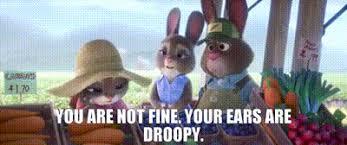
When Judy “gives up?” Quits her job? Goes back home? Stops trying? Her civvies aren’t ready-for-action, trying clothes. They’re loose flannels. And her “ears are droopy.”
SERIOUSLY, you can find things like this in every corner of the movie. For every character. Not one character is a throwaway, not in voice acting, not in design, not in animation, and not in narrative.
3. Visual Appeal
Which leads me into this point—no other animated anthropomorphic animal movie is as visually appealing as Zootopia.
What Zootopia does is it matches the best of the best anthropomorphic animal designs from past Disney movies:
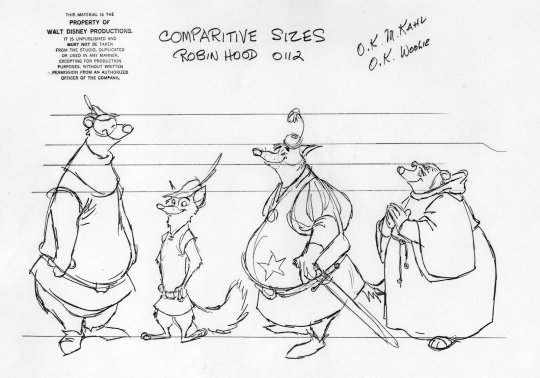
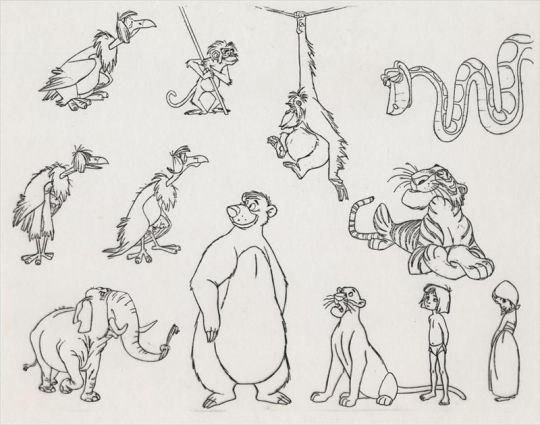
And they marry it with this incredible intentionality with modern CGI.
Did you know Disney invents its own software for things like fur textures?
The sheep’s wool, the velvet pig skin, the fox fur, the bunny fluff—it’s all completely different textures. There’s no one “fur” covering all the hairy mammals.
Nick isn’t just orange. He’s orange with deep red and dark tufts. Judy has black tips to her ears, too—which helps the two of them look like, in some sense, they belong “together” in every shot.
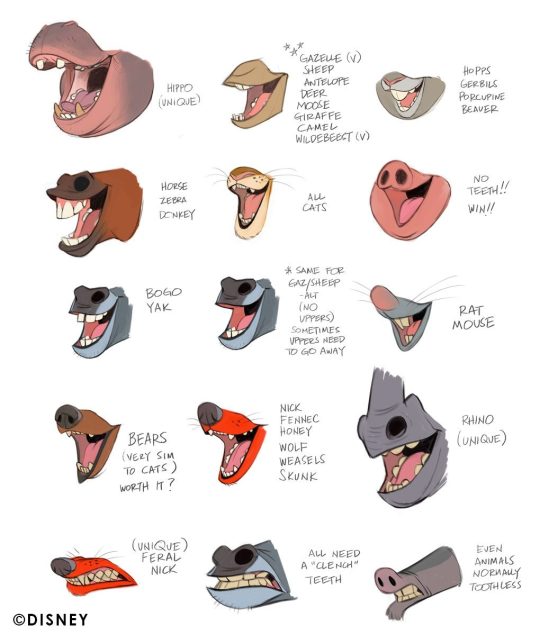
It’s so important to the movie that the animals feel like animals that they worked this hard to do this. And then that extends to the textures of the snow, the ice, the sand, the wet leaves, the grass, the fire.
Every character moves like their animal, and like themselves. Nick and Gideon are both foxes, but they don’t move similarly at all. Gideon is aggressive and glowering and physical. Nick, again, is slouchy, leans on everything, completely non-confrontational.
Other anthropomorphic animal movies like Sing or Puss in Boots—they’re not doing both as well. Zootopia is appealing, without sacrificing realism completely, and without cutting character acting.
The lighting. Nope. This post is too long, I can’t talk any more.
4. Earnestness
There is no disingenuous moment in this movie.
The animators are never lazy. They always go for the challenge. They don’t cut corners. Have you ever seen “Over the Hedge?” I like Over the Hedge. But I watched it recently and it’s crazy how many shots are strategically placed so that the animators don’t have to solve a certain effects problem.
For example, when RJ sprays Hammy with cool whip to make it look like he has rabies? He doesn’t. You never see the cool whip leave the can. It just cuts away, then cuts back when RJ is pulling the can away from his face. The shots are also cut so that you never have to see gas actually come out of Stella—and you never see Vern’s full body as he gets back into his shell, just the upper part of the shell as he wiggles it around, going through the motions of putting it back on.

That’s because that stuff would be painstaking to animate. Any time one character has to interact with props or substances (especially liquids) that are not part of their model, it’s harder on the animator.
Zootopia? We’re getting full-on views of characters getting wet, fur and all, characters touching various objects and elements, foam coming out of the mouth, new clothes, new set pieces, multiple models, huge crowd shots of different animals in different outfits, all with their own movement patterns and acting.


And all that hard work and effort, aimed so totally at the main theme of the movie? Making sure it looks as good as it can? Not just that, but the way it’s written, the acting, is so genuine. They don’t hold anything back. They don’t shy away from real emotion.
Judy Hopps’ apology scene is brutal. She’s crying, having a hard time finishing a sentence, her voice is all tight. It’s not pretty, it’s not romantic, it’s like…ugly crying. And her character is wrong in a super embarrassing way. They're not afraid to go there. The writers, the actors, the animators—they’re not afraid of being too vulnerable with these character flaws.
So many movies, especially kids’ movies today—they just pull up and shy away from being real through their characters. They think a quick sad facial expression will get the point across. And it does. The audience gets that the character feels sad about whatever the circumstance of the scene is. But not as powerfully. Because you didn’t put as much work and heart into it.
Zootopia is all heart, from work ethic to vulnerability to the filmmakers enjoying what they’re doing, enough to make it as good as it can possibly be. I can’t explain it better, other than to say, you feel like they would’ve been happy making this movie much much longer than it was. You feel like they’re cramming every bit of joy and passsion into every little joke, every side character, every hair on a CGI bear.
There you go. Long post, you did ask for it
#Zootopia#Nick Wilde#Judy Hopps#Zootopia appreciation#anthropomorphic animals#Fox#bunny#Disney#Zootopia 2#Jason Bateman#ginnifer goodwin#byron howard#meta#character analysis#design#over the hedge#puss in boots#sing#movie#animation#character design#character study#critique#review
261 notes
·
View notes
Text


My favourite books from 2024! Another really strong year of books for me -- every year will have some stinkers and a bunch of middling reads, but the highs of this year were really high so I'm pretty content
As always, I give more detailed descriptions and opinions of the books in my month reviews, but here's a quick breakdown for anyone who's interested:
The Anxious Generation by Jonathan Haidt
A non-fiction book that looks at how childhood has been “rewired”, focusing specifically on the increase of overprotective parenting, increase of tablet/social media usage, and decrease of unstructured, independent play. It was a fascinating read that really looked at how children need to be given lots of opportunities to play, take risks, and make mistakes in order to learn and grow and how a loss of that might be impacting people’s mental health. As someone right on the cusp of the age bracket that’s being focused on, it felt very exposing.
Apothecary Diaries v1-2 by Natsu Hyuuga
Maomao is kidnapped and sold as a servant to the imperial palace, where she serves as a general dogsbody in the rear palace, home of the emperor’s various consorts and concubines. She’s determined to keep her head down until her contract is up… until she helps solve a mystery and catches the eye of the powerful eunech Jinshi who soon learns about her in-depth knowledge of apothecary work and anything to do with poisons. Very funny premise, Maomao hates Jinshi soooo much and he is such a simp for it. She just wants to eat poisons and be left alone and he says “no<3” to both of those
Bury Your Gays (and Straight) by Chuck Tingle
Both of these are very explicitly queer horror novels. Straight is a novella that riffs on the format of a zombie story, but with straight people becoming inexplicably violent towards queer people one day a year. Bury Your Gays is about a Hollywood screenwriter who realises his horror creations are begin to stalk him in the real world. Both are very intentionally built around social commentary on queer issues, and despite have audacious premises they completely own their camp and end up producing really well thought out, insightful stories. I can’t say I liked either as much as Camp Damascus but either is worth a read.
Console Wars by Blake J. Harris (and Blood, Sweat, and Pixels by Jason Schreier)
Console Wars is a nonfiction book I’ve meant to read for years on my brother’s recommendation and I quite enjoyed it. It explores the history of the video game console market in North America, with a focus on how Nintendo revitalized it and how Sega then swooped in to upset the monopoly it held. The book is written in a very narrative, personable style and I found myself really rooting for the various people and companies being portrayed ahahaha. A shockingly fun read. I also read Blood, Sweat, and Pixels which wasn’t quite as narratively compelling but a related read that looked at games with complex development cycles.
Defekt by Nino Cipri
Technically the sequel to Finna which I also read this year, but Defekt works as a stand-alone and is, imho, the better of the two. Both deal with a surrealist horror Ikea setting, where the sheer density and liminal-space-ness of it all allows strange wormholes to open up between these stores from different dimensions. Finna deals with actual wormhole hopping, whereas Defekt focuses in on one employee who gets assigned to a very strange overnight inventory shift.
The Disabled Tyrant’s Beloved Pet Fish v1-2 by Xue Shan Fei Hu
Fish isekai book. Is this a good book? No. Is it a really really fun book? Yes, in spades. In this book, Li Yu wakes up in a court drama novel… but not as a character but rather as the tyrannical prince’s pet fish. He is given the task to improve the prince and is stuck figuring out how the hell to do this as a fish. This book knows exactly how ridiculous it is and leans into it. Li Yu and Prince Jing are both idiots in very unique and exciting directions. No one knows what the fuck is happening.
Down Among the Sticks and Bones by Seanan McGuire
A prequel to Every Heart a Doorway, though it works perfectly well as a standalone. Honestly I liked it more than the first. This book has deliciously gothic horror vibes, and it plays with all the tropes you would expect from gothic horror / fear of the sublime. It’s about sisters who find a strange chest that lets them descend to the sinister land of the Moors. This is where vampires rule, werewolves stalk, and mad scientist’s ply their craft. The girls end up separated on and very different trajectories as they grow and acclimatize to the brutal existence of the Moors.
Escape From Incel Island by Margaret Killjoy
Exactly what it says on the tin. Completely insane book that is very worth the read if you feel like something that is patently insane. I strongly recommend treating this as a read aloud with a friend or loved one because I read it with my brother and couldn’t stop laughing. Top notch mercenary Mankiller Jones is sent to escort a computer scientist to Incel Island to retrieve lost governmental data. There they have to survive the hoards of Nice Guys, Volcels, Betas, and every other violent inhabitant of the island if they ever want to… escape from Incel Island.
Heaven Official’s Blessing v6-8 by Mo Xiang Tong Xiu
I finished the main series of Heaven Official’s Blessing (without reading the extras yet), and man what an ending! I could not have asked for a more epic or satisfying conclusion! The final battle and its various stages? The character reconciliation? The villain reveal? Perfect, no notes. The series itself follows Xie Lian, a prince who has ascended to godhood twice and been cursed and cast out from Heaven just as many times, giving him the title of the Laughingstock God. The story begins with him, to everyone’s dismay, ascending a third time.
Horrorstör (and Paperbacks from Hell, My Best Friend’s Exorcism) by Grady Hendrix
This book also deals with a Strange Alternate Ikea, but is the superior book. This was one of my top reads for 2024, and it was flawless horror. It is essentially a haunted house story set in an Ikea, that manages to be both chilling, disgusting, and a shockingly insightful critique of capitalism and retail. Very worth the read.
After reading this I also read Paperbacks from Hell (a nonfiction book that does an analysis of horror fiction from the ‘70s and ‘80s, very good read) and My Best Friend’s Exorcism (which was decent but not my favourite of Hendrix’s since possession and exorcism isn’t my favourite brand of horror. The vaguely queer undertones and ending I found interesting, and it did some cool things throughout.)
Jeeves and Wooster books by P.G. Wodehouse
I ended up listening to so many of the Jeeves and Wooster audiobooks this summer while I was travelling. There were some I really really loved and some that fell very flat for me. I think I listened to too many in a row by the end… These books are like popcorn, not deep but very fun, and follow the airheaded but good natured Bertie Wooster and his man Jeeves who unfailing swoops in to solve all the strange and inane problems the Bertie gets involved in. They tend to be funny, light-hearted, and clever in their resolution of plot problems… though some of the issues do get rather repetitive. My favourites were: The Inimitable Jeeves, Very Good Jeeves, Right Ho Jeeves, and the Code of the Woosters.
Kaiju Preservation Society by John Scalzi
Some excellent science fiction, especially for my Pacific Rim loving heart. This bordered on the cosy fantasy genre, while mixing in plenty of science, world-building and a good dash of excitement. During the Covid-19 lockdown, Jamie Gray is stuck trying to make ends meet as a food delivery driver… until he runs into an old acquaintance who suggests he might have a very different job offer for him. Jamie ends up joining this very secretive “animal rights group” and finds out just how massive, dangerous, and otherworldly these “animals” are by being risked to an entirely different dimension filled with giant, radioactive monsters.
Lula Dean’s Little Library of Banned Books by Kirsten Miller
One of my favourite books from this year! Tthis book managed to hit on very topical subjects with both tact and humour. Lula Dean has spearheaded a book banning crusade, managing to get a number of “problematic” books removed from the library and has made a show of setting up a Little Free Library in her yard full of “appropriate” books instead. When Beverly Underwood visits her mother and hears about this she’s so exasperated with it all that she quickly hatches a plan swapping out the dust jackets of some of the banned books with the ones in Lula Dean’s Little Free Library. The rest of the story is about various people in the town who borrow a book from Lula Dean’s library and how the book they got instead ends up impacting not just themselves but their town. The first story involves a penis cake. Can’t recommend it enough, starts out humour and quickly becomes something you want to rally around.
My Happy Marriage v1 by Akumi Agitogi
This was pure mindless fluff, it was honestly a delight. This is a low-fantasy, Cinderella-esque story set in the Taishō era. It focuses on Miyo Saimori who lives under the thumb of her cruel step-mother, haughty step-sister, and indifferent father. She’s resigned to being treated like a servant in her own home and ekeing out a strained existence, but her life takes a turn when she finds herself nominally engaged to the allegedly cold and cruel Kiyoka Kudou. It’s just absolutely overwhelmingly cute and I really enjoy the contrasting POVs.
A Series of Unfortunate Events and Poison for Breakfast by Lemony Snicket
I’d never finished The Series of Unfortunate Events when it was originally coming out, so I finally sat down and did that, and honestly it was well worth the wait! It was a very interesting series to read as an adult, especially all in one go, because it really let me appreciate everything that Snicket was trying to say. It was a much more clever and philosophical read than I was anticipating, and The End was fucking superb. He absolutely stuck the landing, it completely blew me away. Poison For Breakfast was also a very interesting standalone novella that felt like surrealist philosophy. I might have even enjoyed it more than the basic TSOUE.
The Poison Squad (and The Poisoner’s Handbooks) by Deborah Blum
Poison Squad is a very compelling and topical nonfiction about the formation of the American Food and Drug act. The state of unregulated food processing in the late 19th century was, in a word, nightmarish. Don’t read this book if you have a weak stomach. But it’s completely fascinating to see how one person, Dr Harvey Wiley, made it a personal mission to scientifically prove what all these mysterious food additives were doing to people and put limits to what could be sold to consumers. I liked it so much I went to read Blum’s other book, The Poisoner’s Handbook which is set during Prohibition and explores the rise of forensic medicine and again exposes how people were being poisoned by simply living their standard lives.
The Pushcart War by Jean Merrill
The real, true history of the New York City Pushcart War!! For real!!! This is a delightful underdog story that is really written in the style of a history textbook recounting the fictional Pushchart War. This war started in New York City as the roads get increasingly congested with traffic, the worst offenders being the increasingly massive and arrogant trucks. The trucking companies hatch a plan though: if they begin to push out the little pushcarts, framing them as the problem for the congestion, then how hard would it be to push out taxis next? Or buses? Or motorcars? How long until they can make the road a perfect habit for trucks and trucks alone? How can something as small and poor as a pushcart owner fight back?
Railsea (and This Census-Taker) by China Miéville
I heard Railsea described on tumblr and it sounded sufficiently insane that I had to read it for myself. This author is truly unrivaled when it comes to bizarre worldbuilding that feels both very, very grounded in reality while also being completely unexplained and impossible. Railsea is essentially a Moby Dick meets Treasure Island retelling but with trains instead of boats and giant, mutated, vicious moles instead of whales. Unhinged. Can’t recommend enough. I followed this up by reading his novella This Census-Taker which was not as much of a frolicking adventure but fucked with my brain just as much or more than Railsea did. Genuinely not sure I even know what happened in that story but I enjoyed the experience of being completely fucking baffled for some 200 pages.
The Salt Grows Heavy by Cassandra Khaw
Another book to ideally not read if you have a weak stomach. This novella is very big on unrelenting body horror. This is a twisted fairytale retelling in which a cannibalistic Little Mermaid meets a plague doctor Frankenstein. Both of them are walking away from cruel past lives, along a trail that’s soaked in blood and viscera. You feel how painfuly and disgustingly human this book is, while also being so wildly separate from anything that resembles human anatomy or morality. Superb.
Scum Villain’s Self-Saving System v1-4 by Mo Xiang Tong Xiu
The last of MXTX’s three series I needed to read. It was the one I was most hesitant about, but I ended up having a really great time with it. It is simultaneously the most light-hearted and silly of the three series, while also the one that most gleefully dives into torture and sex. So you get a bit of everything with this, and as usual MXTX does a really good job of mixing the humour and series in a way that keeps things constantly interesting. The story is about Shen Yuan who dies our of pure, frothing fury after reading the shitty ending to the shitty, porny webnovel he’s been reading for hundreds of thousands of words. He dies cursing the lousy author and the lousy writing so he’s given a chance: step up and do it better! Which is easier said than done, when he finds himself waking up in the body of the series’ villain who is destined to be gruesomely tortured to death. Better get on that!
Shakespeare: The Man Who Pays the Rent by Judi Dench and Brendan O'Hea
This is the written result of a number of interviews held between Judi Dench and Brendan O’Hea and she discusses her time as a Shakespearean actress. It looks into what her time working with theatre companies was like, summarizes the plays she took part in, and delivers into some fascinating character analysis of the roles she played. An absolute treasure of a book for someone who enjoyed their Shakespeare and/or Judi Dench.
Singing Hills Cycle v1-5 by Nghi Vo
Probably my favourite series that I read this year, I can’t wait for the next book! This series follows Chih and her magical bird companion who come from the Singing Hills Monastery, an order that is devoted to keep recording tales and keeping a history of the land. Chih travels all over in these various novellas, collecting stories, memories, and histories that they come across. The first book has them entering the recently unwarded palace of the late Empress to learn about her marriage, imprisonment and rise in power. The second has them trapped by a pack of tigresses with nothing to do but frantically lure them into comparing stories.
The War That Saved My Life by Kimberly Brubaker Bradley
Ten year old Ada was born with a club foot and because of it has never been allowed to leave her apartment. She lives a hard life trying to care for her younger brother and suffer through the abuses of her mother. Things change though as the Second World War truly begins and London begins to evacuate children to the country. Ada is determined — she and her brother will evacuate, they will escape their mother’s house, even if it means her learning how to walk on her club foot. Even if it means facing how different life is for unwanted slum children in the country, and confronting how much she and her brother don’t know about life. This was a very touching book, it did a great job of balancing Ada’s justifiable pain and anger with an optimistic story. Queer elements are all subtext but there — they aren’t the main focus of this story.
When Women Were Dragons by Kelly Barnhill
This book absolutely took my breath away, it was a next level literary experience. It’s very, very solidly magical realism, so don’t go into this expecting true fantasy, everything going on here is allegorical and a beautifully done allegory at that. This story is set during the 1950s, in a time surrounding an event known as “The Mass Dragoning” when thousands of women suddenly, spontaneously, transformed into dragons and flew away. The story follows Alex Green who was a child during this event. Her aunt transformed. Her mother didn’t. Both of these things have profound impacts on Alex as she grows up, and a woman’s role in society, a woman’s anger, her joy, her desire are all questioned and explored.
#book review#book reviews#2024 books#apothecary diaries#tgcf#svsss#disabled tyrant's beloved pet fish#shakespeare#chuck tingle#bury your gays#judi dench#jeeves and wooster#singing hills cycle#series of unfortunate events#lemony snicket#asoue#when women were dragons#salt grows heavy#railsea#war that saved my life#pushcart war#lula dean's little library of banned books#kaiju preservation society#poison squad#grady hendrix#horrorstor#escape from incel island#seanan mcguire#down among the sticks and bones#console wars
100 notes
·
View notes
Text

THE NEW YORKER, August 19, 1939.
And the review by Russell Maloney:

#vintage advertising#vintage advertisement#movie ad#1939#the wizard of oz#judy garland#bert lahr#ray bolger#jack haley#frank morgan#bad reviews
39 notes
·
View notes
Text

spooky tuesday is a (now not so new!) podcast where we’re breaking down all of our favorite slashers, thrillers, monster movies and black comedies on the new scariest day of the week.
heyyyy, bestie. how are you doing after the last few weeks? feeling any better? well, we weren’t when we recorded this episode. we were still processing some pretty bad news — but that’s actually sort of to theme. on our newest spooky tuesday, we’re talking about smile (2022), a movie all about trauma and trying to grin-and-bear your way through it. a few years back, this was one of the season’s most hotly anticipated flicks, but it didn’t necessarily stick the landing. opinions were split here at spooky tuesday, but after chelsea and monica saw smile 2 in 4dx (which totally slayed, btw), we were finally ready to revisit it and get sydney’s take. join us as we discuss curses, share our theories, and lay the groundwork for our eventual episode where we give skye riley the shine she deserves.
give spooky tuesday a listen on apple podcasts, spotify, iheart radio, or stitcher
#smile 2022#smile movie#sosie bacon#kyle gallner#parker finn#jessie t usher#caitlin stasey#kal penn#judy reyes#gillian zinser#nick arapoglou#rob morgan#horror#horror movies#horror podcast#movie review podcast#horror movie podcast#horror movie review#spooky tuesday#new spooky tuesday episode
11 notes
·
View notes
Text
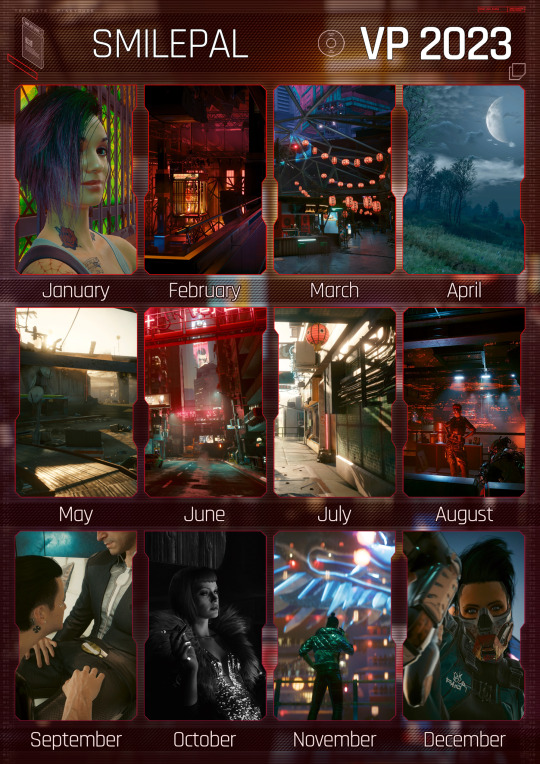
11 months of cyberpunk (and one imposter)
I’d been a little nervous about posting this but finally just decided to go for it. I have improved over the year, even if it’s the first tentative forays into modding (or the realization that I could take vertical shots in vanilla if I was willing to tolerate the neck strain) and hoping I can continue to further improve over the coming year.
A big thanks to all of the people I asked for modding advice and who were so encouraging and let me talk their ear off about OCs—y’all are the real inspiration.
(Template credit goes to @pinkyjulien and the shots are all mine 🩷)
#year in review#my shots#cyberpunk 2077#virtual photography#cyberpunk ocs#oc: hiro oda#oc: ares tanner#oc: avi kaiba#mr blue eyes#ofelia sirawian#judy alvarez#evelyn parker#with a guest appearance from Witcher 3#I apparently didn’t take any cyberpunk shots in April#templates
38 notes
·
View notes
Text
REVIEW: The Ex-Girlfriend of My Ex-Girlfriend Is My Girlfriend by Maddy Court
Whenever I delve into a new project, I make serious considerations about what research is necessary for it. What areas do I lack knowledge in? What is the project focused on, and can I answer to those themes intelligently? The next step is to start finding books I feel might answer those questions and get reading.
When it comes to American Dream, I knew I would have to delve into gender and sexuality. In particular, lesbian identities and experiences, especially those that dyke/butches, etc. experience. I identify as bisexual, but there is something within the dyke/butch/masc labels that, while I do not feel comfortable taking up as my own, appeal to me and my identity.
Because of this and the centrality of the characters' lesbianism — I knew I had to read up. I checked out The Ex-Girlfriend of My Ex-Girlfriend Is My Girlfriend without knowing it was actually dating advice for queer folk. Nevertheless, it proved to be informative!
I read all of Maddy Court's (and friends) advice in one sitting. I'm currently going through a weird phase in my own romantic life — breaking up with my partner of 3 years, exploring polyamory & generally what I want out of relationships, discovering I may not be as sex-apathetic as I’d thought — so on a personal level, Court's book was extremely helpful. If you're a queer person, the book covers everything from new love, getting over someone, finding your place in the community, coming out, etc. There's a little something for everyone. It was comforting, even though I've been out for 5ish years, to read something written for you in mind.
What shocked me the most about reading TEGOMEGIMG (lol) is that I forgot straight people get all these resources about love, relationships, etc. and we don't have that same wealth of resources, which is especially frustrating as our love inherently exist outside of what our society deems "normal" or "acceptable" or the "status quo." This book did a phenomenal job of reminding me that I may be queer, but I'm human, too. In that way, I cannot recommend this book enough!
TAKEAWAYS & IMPORTANT INFORMATION:
On a I'm-researching-for-a-book level, I would not say that this does the job except in a very particular way. This isn't a problem! I'm the dumbass who didn't read the description before checking it out lol. For research purposes, though, these are the things I found most informative:
Transmisogyny is alive and well in the queer community! As a trans masc individual, I'm keenly aware that the experiences of trans femmes/trans women are different from my own, and given Judi is a trans woman (a particularly masc-presenting one at that), the book opened my eyes to some considerations I should have when writing her, what her experiences might be realistically, etc. Central to her character is her feelings of alienation and loneliness. What role would her experiences in queer, sapphic communities have in those feelings? I want things to be nuanced of course, and the question from Ex-Girlfriend that deals specifically with these experiences and frustrations (beautifully answered to by Mey Rude) points to some of those considerations in representation.
The difficulties in finding your queer community, even when you move to a new place or think you've found some great people. Each of the main characters face some level of alienation, both self-imposed but also as a result of their experiences. Eddie really struggles with finding his place, especially in rural Michigan, and I found Maddy's perspective as a midwestern queer illuminating — how her dating life has adapted to the fact that her pool of queer friends and acquaintances isn't terribly large, so she's accepted that LDRs are going to be common in her life.
Compulsive heterosexuality. While I wouldn't call it a central part of Birdie, I do want to explore that part of her. When the story starts, she's with a man — her best friend of 6-8 years, someone she grew to love over time and found attractive. She thinks of him as the one-off guy, even though she's had other partners in the past that were men. Overall, the q's regarding comp het and internalized homophobia were illuminating in this regard, especially as I struggle with both myself.
FINAL REVIEW:
9/10, but not very useful for the purposes of researching queer identities and representation. I would recommend the book to literally anyone — it's such a short read, and you'll walk away with a leveler-head. You'll feel like you're filled up with all this good advice, all this love for yourself, your friends, for the people you will meet. The book soothed a lot of my anxieties, some I hadn't even been able to recognize. For what it is, Maddy Court's The Ex-Girlfriend of My Ex-Girlfriend Is My Girlfriend does exactly what it set out to do. In that way, there's not much criticism to give.
#research review#review: 9/10 but not really useful for my purposes#the ex-girlfriend of my ex-girlfriend is my girlfriend#lesbianism#dating advice#queer love#transmisogyny#judi: research#eddie: research#birdie: research
5 notes
·
View notes
Text

………. I'm glad you're aware of that, sir, but then why not give her any… I get that it's appropriate to the time period, but man, the amount of "oh, this kid wasn't beaten/spanked enough, that's why they're a brat" with kids who are traumatized/lost parents/are not getting their emotional needs met is wild... at least it's Maple Town, so it ends neatly and happily with a life lesson learned (including for the parents, because man, his favouritism of his son over his daughter is harsh!)


It's sad Judy has to prove herself worthy of her father's praise, but I'm glad that even before that, Patty calls him out and explains that Judy's antics (wearing the dress, bringing his favourite (sugary, messy...) snack into his work area... were all because she just wanted him to notice her. ;_;


#Judy Richmond#Suzie Squirrel#Squire Squirrel#Robert Richmond#Maple Town#parental neglect#negative *#I will not include the donut scene because even if the worst is off-screen... ouch.#corporeal punishment *#child abuse *#by modern standards#Patty Rabbit#Patty Hope Rabbit#Lamees' gifs#gif set#mini review
5 notes
·
View notes
Text
Tiny Review: Quantum Of Solace 2008. James Bond with character arc.

I am in my Daniel Craig James Bond phase of my Tiny Reviews. Loving it so far. Action. Women. Clear good and bad. Criminal masterminds. Character arcs.

Quantum of Solace is a 2008 spy film and the twenty-second in the James Bond series produced by Eon Productions. It is the sequel to Casino Royale (2006). It is directed by Marc Forster and written by Neal Purvis, Robert Wade, and Paul Haggis. The film stars Daniel Craig as Bond, alongside Olga Kurylenko, Mathieu Amalric, Giancarlo Giannini, Jeffrey Wright, and Judi Dench.
#james bond#quantum of solace#daniel craig#olga kurylenko#mathieu amalric#giancarlo giannini#jeffrey wright#judi dench#spy movies#action movie#thriller movies#2008 movies#movie review
8 notes
·
View notes
Note
1 & 6 please!
Fandom Year in Review Asks
Favorite fictional characters this year
Already answered.here
Favorite movies of the year
I really don't think I saw a ton of movies this year and certainly not ones from this year. The only ones I saw in theaters this year were Dune 2, Inside Out 2, and Wicked (Part 1). Wicked was definitely my favorite of them by far (which I'm not very surprised about tbh) and I am already hyped for Part 2.
In terms of movies from other years that I enjoyed, The Wizard of Oz is still the ultimate fave and I am especially jazzed about it due to all the Wicked excitement. Am looking forward to starting my annual Christmas movie watch through as well when I get home. (Especially looking forward to my annual post-White Christmas watch heartbreak that Judy/Phil smutfic doesn't exist. Because look at them.)

Fandom Year in Review Asks
#every christmas i become briefly obsessed with phil/judy and excited for the smutfic that surely emerged out of nowhere in the past year#every christmas i am disappointed#i mean yeah i get why there's next to no white christmas fic and the little that exists is phil/bob#but THEM#the chaotic good fake dating bi4bi side pairing we deserve#she orders him around and he's a little terrified of her but loves it#ask memes#fandom year in review#white christmas 1954\
2 notes
·
View notes
Text
Ohh im watching murder on the orient express (2017) rn and it's amazing!!!! Like I want to kiss Kenneth Branagh on the fucking mouth for rounding up these amazing actors and putting them into this film!! And the VIBES!!! NA DAME JUDI DENCH. AND MICHELLE PFEIFFER!!!!AND JOHNY DEPP AHHH
#the murder on the orient express#kenneth branagh#judi dench#michelle pfeiffer#johnny depp#movie#hercule poirot#poirot#letterboxd#movie review
4 notes
·
View notes
Text
For the ones who stayed
For the ones who left
And for all the ones who were lost.
I seriously recommend this movie.
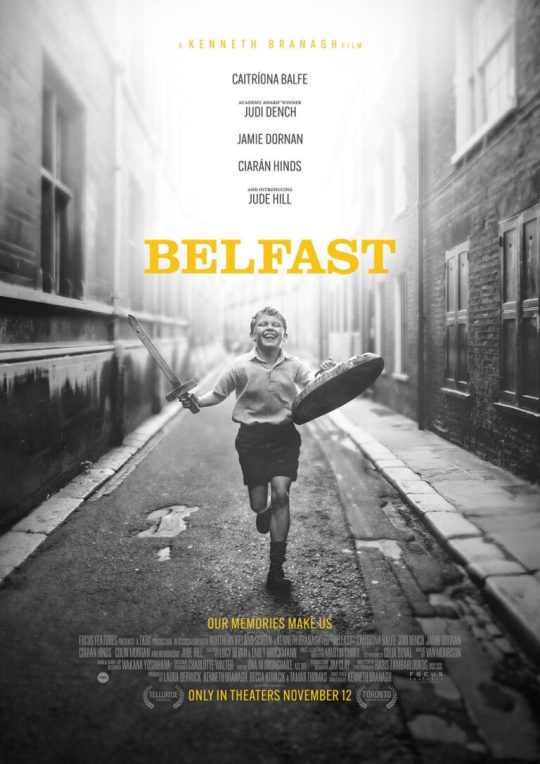
#belfast#Belfast movie#coming of age movies#historical movies#drama movies#black and white movies#jamie dornan#caitriona balfe#ciaran hinds#judy dench#colin morgan#lara mcdonnell#jude hill#netflix#netflix and chill#movie#movies#movie nerd#movie night#movie review#movie poster
12 notes
·
View notes
Text

Had the sort of month where I could feel my books crying out for me while I was at work. They wanted to draw me home into their loving embrace…
My main take away from this month is that if you're going to be anything, by god be sincere
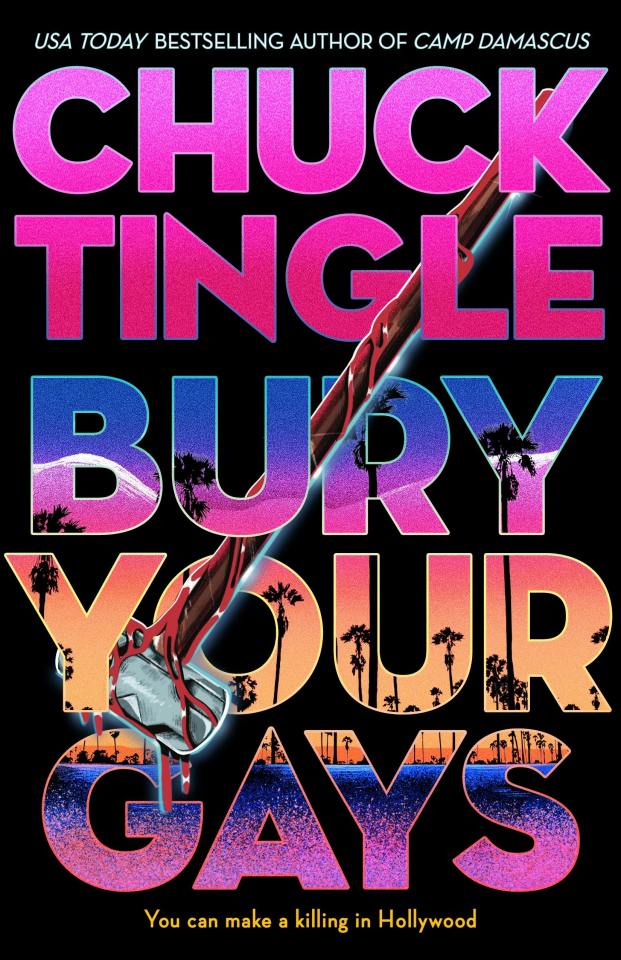
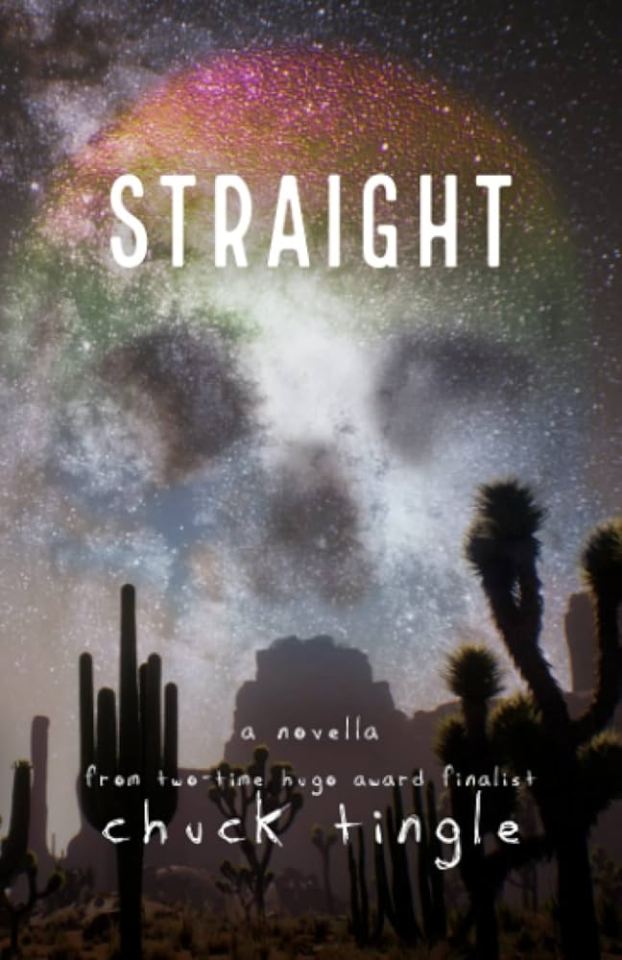
Bury Your Gays // Straight
My hold on Chuck Tingle’s latest horror novel came in just in time for spoopy season, which felt very appropriate, so I read both it and Straight, his horror novella that I hadn’t known about until I was looking up the release day for Bury Your Gays.
Both were quite enjoyable reads, and struck similar chords. He does a really good job of taking a potentially campy concept that’s been done before, and giving a very unique spin — not just in the inclusion of queer themes which can often come across as surface level and token if poorly done, but from the societal commentary that’s woven through both works. The queerness isn't window-dressing, but inherent to the story, horror, and criticism that’s present in both. Another thing they both have in common is that they are also, fundamentally, about hope and community and overcoming horror, which feels very relevant to the topic matter.
Straight is the shorter of the two, and on the surface is a zombie story. Due to vague cosmic horror, a strange thrall comes over straight people once a year that causes them to become rabidly violent towards all queer people. Two years out from the first instance, this story looks at how a group of queer friends deal with the trauma, how society has responded to it (and the fact that this came out 2021 feels very obvious as it looks at a fictional global pandemic), and how the friends themselves brace themselves for this years event. Isolating themselves out in the desert, they batten down and hope to wait for it to pass by relaxing and playing board games… obviously this doesn’t happen as intended.
Bury Your Gays was very different again, and between the two feels like the more ambitious in terms of imagination and story telling. The main character of this story is a partially closeted screenwriter for a major film studio who has had some success, both cult- and critical-success. However he starts to realise that there may be something sinister pulling the strings when he comes face to face with a fan dressed up as one of the horror monsters he had created for the screen. It must be a fan, right?
Both of these are excellent stories, and I appreciate how they shamelessly demand the reader suspend disbelief. They don’t bother over-explaining things, and allow horror to be unapologetically horror, slightly fantastical and campy and definitely scary. I have to admit, neither quite lives up to Camp Damascus, but I enjoyed both quite a bit nonetheless.
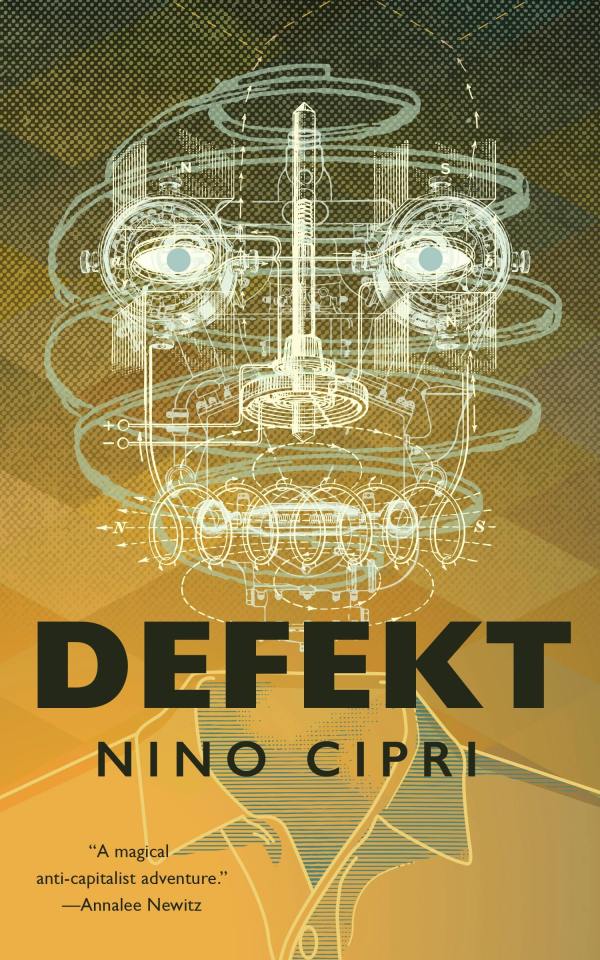
Defekt
The sequel (technically midquel?) to Finna, though it honestly stands alone fairly well. Finna, which involved hopping wormholes through fictional Ikeas, was alright, but I definitely think if you want something like that you’d be better for reading Horrorstör by Grady Hendrix. Defekt, on the other hand, I thought was an excellent novella and I’m glad I decided to give it a try! If you’re on the fence about this series, I’d skip right over Finna and just go straight to Defekt.
This novel is about Derek, who is LitenVärld’s most loyal employee. Everything about his life is centred around his work… even after his shifts he goes no farther than the storage crate in the LitenVärld parking lot where he lives. In this way, and many others though, he starts to notice that there are some… inconsistencies between how he views the world and how his coworkers view the world. He has never quite connected to them before, but do they have entirely different manuals? And why is his superior getting so angry about him taking a sick day when his colleagues seem to see no problem with it? Things come a head though when he’s scheduled for a special sort of inventory shift and he finds himself face to face with not just one but a whole team of people who seem to be his direct clones…
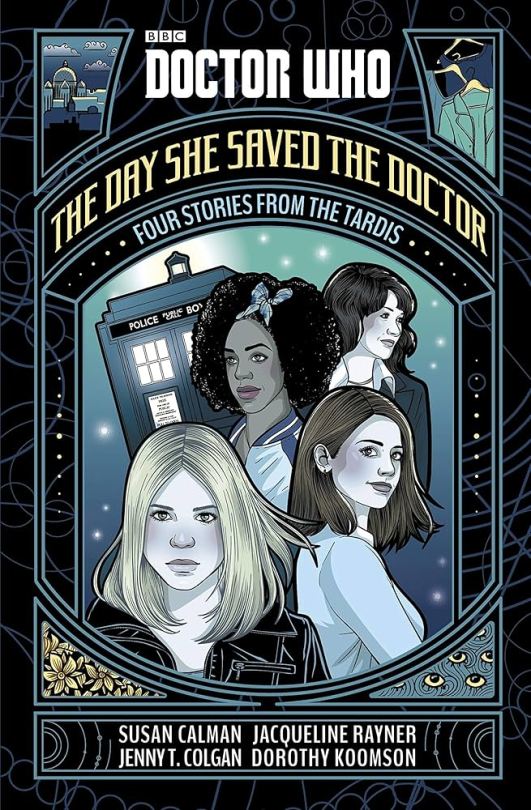
Doctor Who: The Day She Saved The Doctor
Like many Doctor Who novels this one is… fine. If you’re in the mood for more Doctor Who and want something easy it’s pleasant, but nothing world rocking. It’s composed of four short stories that bill themselves as feminist tales that focus on Sarah Jane, Rose, Clara, and Bill and how they “save” the Doctor. Honestly my main complaint is that they don’t actually do a great job sticking to this theme. The stories range from rather hamfisted to completely insincere — none of them have a truly impressive “save” but part of that might just be that they’re such short stories that they really have no space to come up with a complex rescue mission. None of them were actually bad, but also none of them stuck with me enough to describe them now…
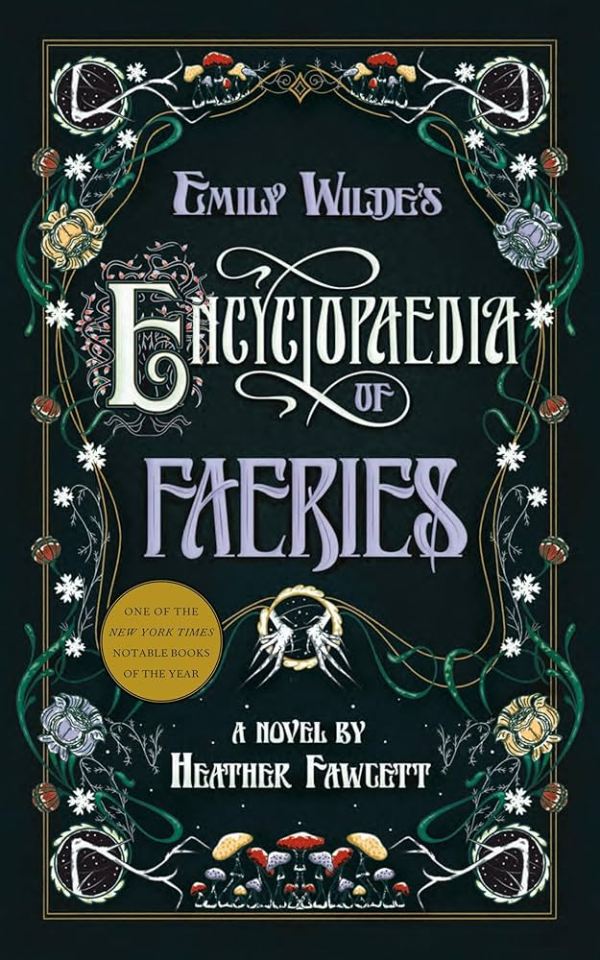
Emily Wilde’s Encyclopaedia of Faeries
I was disappointed by this one. I feel like I’ve seen rave reviews for this novel, and it’s been on my reading list for ages, but now that I’ve finally sat down to read it I found it… profoundly underwhelming. It seems to be going for a sort of “cozy academia” vibe and I’m sure that works for some people but mostly I just found it… very boring. Maybe I was hoping for something more like a grown up Spiderwick. Emily Wilde was an okay character, but without much depth, and the male character they introduced was uninteresting to me. I ended up giving up on it part way through when I finally gave up on the plot picking up in any significant way. If it does get better, it wasn’t worth the slog to get there imho sorry to all the people out there that love it.
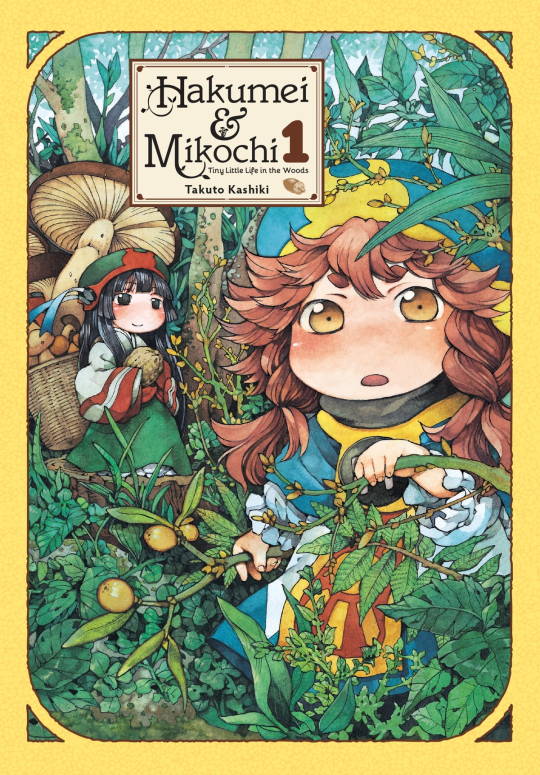
Hakumei & Mikochi v1
I honestly just adore stories about Very Tiny People in a Very Big World. This completely scratched this itch I have for Borrower-esque stories! It’s an episodic manga about the lives of Hakumei and Mikochi, who live together in a tree house, and little events in their life such as shopping in town, camping, and befriending a necromancer! Normal day to day things! I wouldn’t mind reading a second, it was very chill and charming.
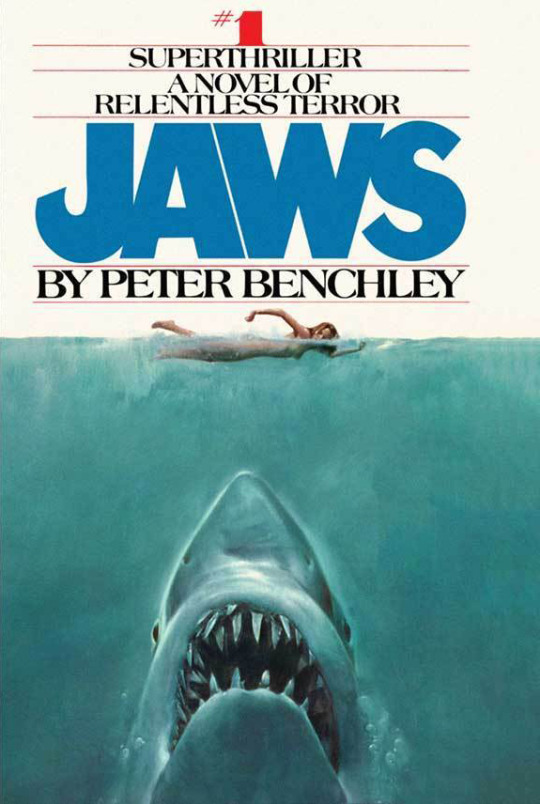
Jaws
I honestly don’t know what I expected here. I had never seen Jaws before, but me and my friends have spent so much time swimming this summer to keep cool that we decided it was the time to finally watch it. I see why the movie is such a classic, it was an excellent film! Very well made thriller! And a great end-to-the-summer movie. Then I made the mistake of deciding to read the original novel. I got about eight pages in before they said faggot for the first time. At that point I decided maybe I should read a review or two. Honestly I might have pushed past the homophobia if the novel itself sounded good, but apparently the types of horror used in the novel vs the film are very different. The novel has none of the subtly that the movie uses and is primarily sexual and gross-out horror that was fairly typical of the 70s pulp horror scene. So. I did not continue reading Jaws. I feel like I need a nega-pride flag for this one.
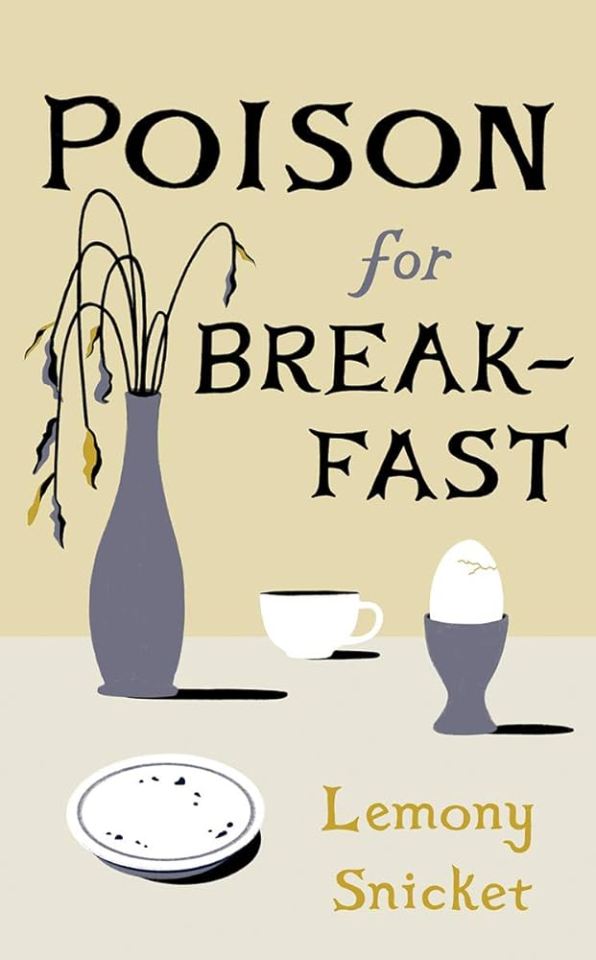
Poison For Breakfast
Really neat novella by Lemony Snicket, and honestly I have a hard time classifying this one. It’s technically fiction, but in a lot of ways feels like it’s not, it’s autobiographical about someone who doesn’t actually exist. It starts with the author receiving a note telling him that he ate poison for breakfast. More than anything, it’s an entire book of philosophy told through the lens and language of Lemony Snicket. If you have any fond memories of The Series of Unfortunate Events then honestly you should read this. Even if you don’t, it’s worth reading. The language is so evocative and it genuinely made me stop and think and squirm with a general discomfort that good philosophising around life and death can bring about.
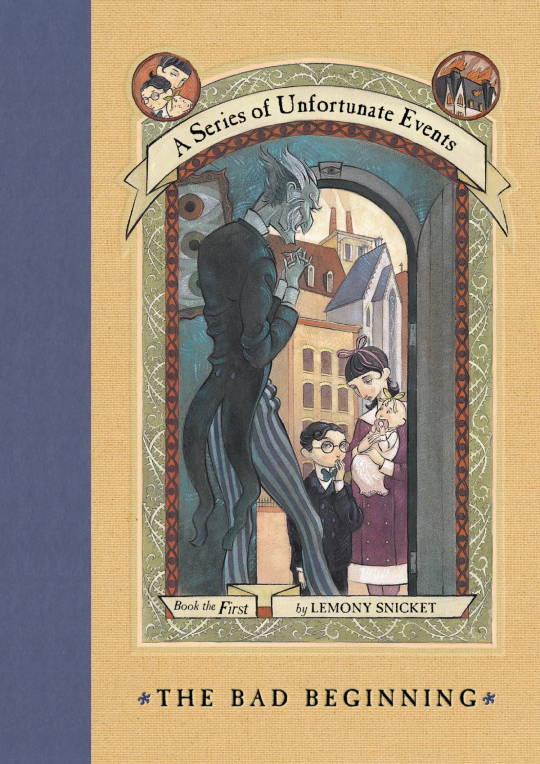
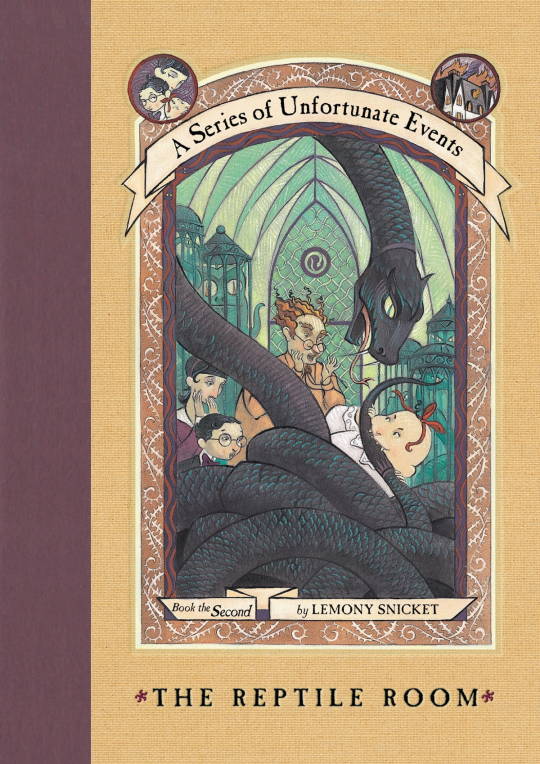
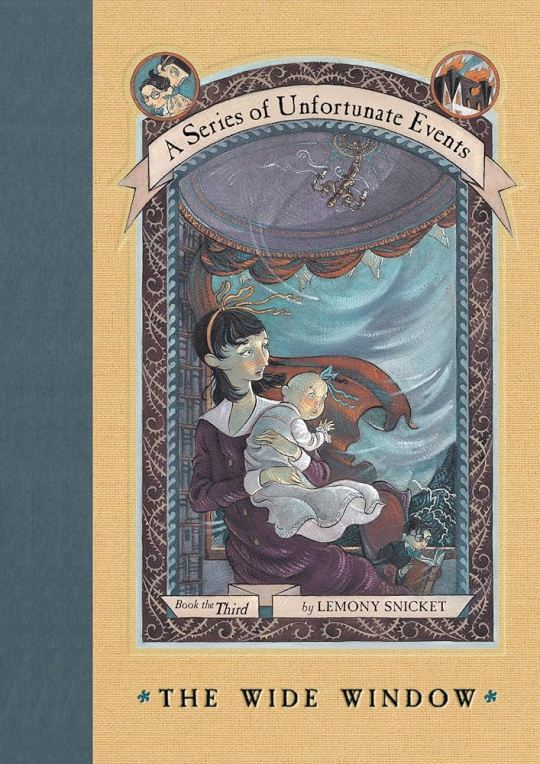
Series of Unfortunate Events: The Bad Beginning, The Reptile Room, The Wide Window
I stumbled across Poison for Breakfast specifically because I decided to reread the Series of Unfortunate Events. I’ve been fairly anxious lately (more than usual, which is saying something when it’s me) and I needed something that would hold my interest but otherwise be an easy audiobook to listen to at night or during my morning commute. Since I’ve never actually read the whole series as a kid (they weren’t all out yet when I started and I never got around to finishing it) I decided now was the time. I’m especially excited to read it as an adult because I’m picking up a lot of nuance I simply didn’t notice as a kid, especially related to the Snicket / Beatrice subplot. Lemony Snicket really does now how to write a compelling mystery.
If you’ve never read The Series of Unfortuante Events, it’s got to be one of the best youth novel series out there (I say, unbiased). The narration is unlike anything else I’ve read in any genre, as is the strange world that the story is set in. The series starts with the three Baudelaire children learning that their parents died in a horrible fire that consumed their home, and that they will have to go stay with a distant relative who they have mysteriously never heard of before: Count Olaf. It quickly becomes apparently that the cruel Count Olaf is only after the Baudelaire fortune that Violet will eventually inherent, and though they expose him by the end of the first book it’s only the beginning of the tragic events that will dog at their heels from here on out…
The Bad Beginning, The Reptile Room and The Wide Window are the ones in the series I’ve reread the most, and were very comforting to return to! (also I feel compelled to mention that Tim Curry does the audiobook for The Reptile Room and he uses his fucking Nigel Thornberry voice for Uncle Monty and you haven't lived until you've heard Nigel Thornberry get horrifically murdered in a completely unrelated novel... wild experience.)
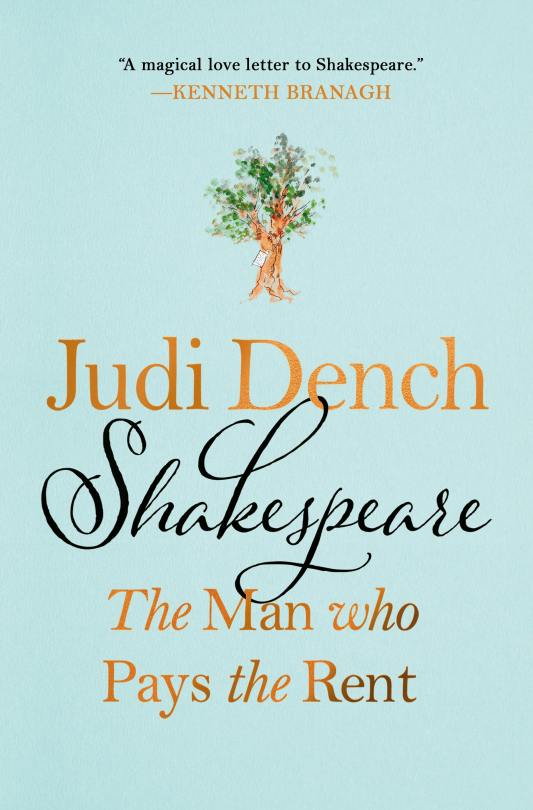
Shakespeare: The Man Who Pays the Rent
Easily the best book I read this month. This book was originally meant to be a series of interviews between Judi Dench and Brendan O’Hea about her time as a Shakespearean actor. The interviews took place over four years and were meant for archival purposes before O’Hea realised how much these might be enjoyed by a wider audience — and boy was he correct about that.
The interviews are profoundly insightful about the various roles Dench played, her opinions on the characters and plays themselves very compelling, while also being interspersed with wit, banter, and reflections on everything from her fellow actors, to costuming choices, to green room antics. Dench has a remarkable memory and it means the interviews are able to go into great detail about the specific productions of each play that Dench participated in. I listened to the audiobook and if you have even a passing interest in Shakespeare I really can’t recommend it enough.
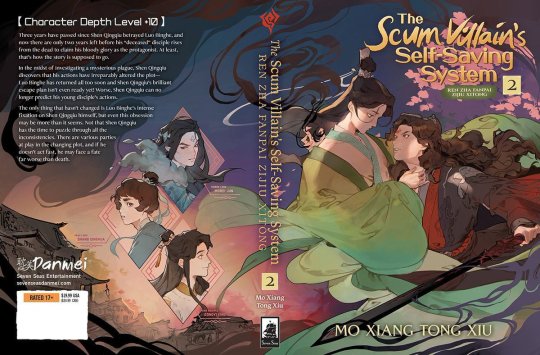
The Scum Villain Self-Saving System v2
I continue down the SVSSS rabbit hole and honestly I have to applaud this series for proving to be more than mindless fluff, which is kind what I had been expecting of it (sorry, I was very biassed against this series). Don’t get me wrong, it is a genuinely hilarious series and an absolute parody of the genre, but it’s more than that which I think is important. Despite being a parody, it’s very sincere in its characters and relationships and story; while the main character may bitch and moan about certain “story tropes” and the “shitty author” who wrote the webnovel he’s found himself in, he’s as much swept up in this world as anyone else is, and the story forces you to acknowledge even the tropier aspects and look at how they would fit into a world where such things dictated every day life.
In this volume Luo Binghe (the “protagonist” who is supposedly destined to kill Shen Qingqiu) returns from his “presumed death” in the Abyss, much earlier than in the original story. Shen Qingqiu is frantic when he finds out, desperate to ensure his back up plan is in place and that he might yet avoid the inevitable death his character is meant to suffer at Luo Binghe’s hands. Of course, nothing is that easy, and Shen Qingqiu has irrevocably changed the plot (and possibly the entire genre) of this story, though he himself may not realise it yet…
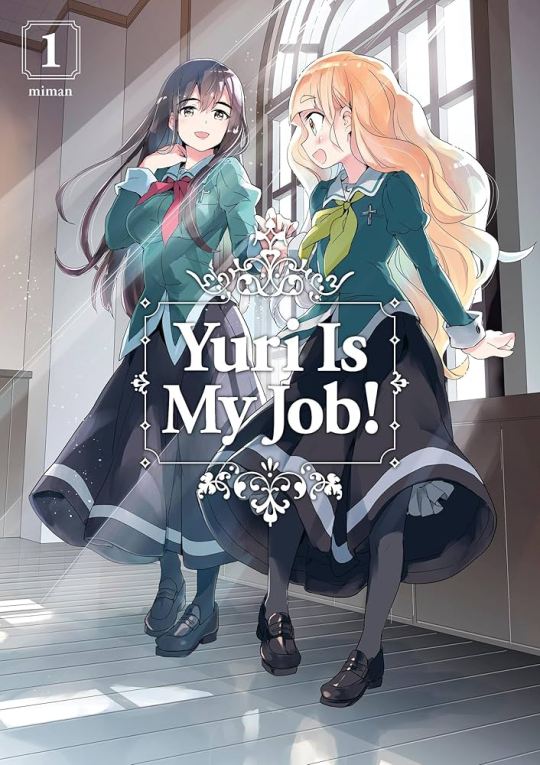
Yuri Is My Job v1
So, my earlier comment about sincerity? How both SVSSS and Chuck Tingle’s stories intentionally use a lot of specific tropes and parody their genres? Despite this, both examples clearly love the genres they’re lampshading and ultimately commit to the story they’re telling. They never break away from the story to wink at the audience and say “see how dumb this is?” (cough Marvel) — they are completely embroiled in the worlds they create, they are entirely sincere in the story they’re telling.
And then you have this. Yuri Is My Job is a yuri manga about a protagonist who hides her true self behind a cutesy, beauteous mask. She’s determined to be the prettiest, sweetest, most desirable person in any room — she always wants to be the first pick! And things continue well for her, until she finds herself getting roped in to covering a shift at an usual themed café: one that’s based around a fictional private academy where the “students” work at the cafe and play out little dramas for the customers.
This could have been fun, especially as the protagonists realises that everyone is wearing a mask, and how their performed personalities can differ wildly from their true personalities, but there’s just no sincerity here. It makes me think of Ouran High School Host Club but without any love behind it. OHSHC can get away with a lot, and I’ll suspend a lot of disbelief while reading it, because it’s having so much fun with what it does. This manga seems to suck away any joy by constantly poking fun at its own premise.
So I dunno… YMMV, maybe this is something someone else would enjoy a lot, but it honestly just kind of annoyed me, especially when I sat down to figure out what exactly I didn’t like about it.
If you’re going to be anything, be sincere at the very least. Show me that you love what you’re about.
#book review#book reviews#queer lit#lgbt books#svsss#shakespeare#judi dench#doctor who#lemony snicket#series of unfortunate events#the man who pays the rent#chuck tingle#bury your gays#straight#hakumei & mikochi#defekt#nino cipri#poison for breakfast#honestly i'm about halfway through the third book of svsss but i have to keep stopping to go and frantically make are for it instead :P#i am so delighted by how good it is i didn't want to be done with mxtx's books yet and was really worried i wouldn't be into this series#but i has its HOOKS in me#what really shook me was realising that we're at a point were kids just... don't know about the series of unfortunate events#it was SUCH a big thing while it was coming up#i still remember the madness around The End#i think the only reason i escaped that point in time without spoilers was because no one knew wtf was going on#anyway i was talking to a couple of kids and realised neither had even HEARD of this series#there used to a block of ratty copies in every elementary library#how the times change smh#chatter
6 notes
·
View notes
Text
Song of the Six Realms review

4/5 stars Recommended if you like: fantasy, quests, music magic
I particularly enjoyed the first part of this book and getting to know the House of Flowing Water. I thought all the information about the musicians, dancers, and artists was interesting, and I liked learning about the way the patronage and apprentice levels worked. I also liked the camaraderie between the girls, even if some of it turned out to be false.
Once Xue leaves the House and begins traveling with Janglang there's fewer people and less worldbuilding for a while. Like Xue, I also began to get frustrated with the lack of answers and how she was consistently left alone with nothing but her qin. There was little action for a while there in the middle so while the descriptions were nice, I did feel my attention drifting somewhat.
I did enjoy the parts about music and the musical magic Xue uses to try and solve the mystery. The poetry wasn't my favorite, but the descriptions of the songs themselves were interesting and I liked the way Xue thought about and described the musical pieces. The music was definitely interesting and I wish it and the way certain songs could 'unlock' things was more of a focus of the story. Sure, it played a big part, but I definitely wanted more music magic.
Xue is left in the dark about a lot of things and so she tends to just float along trying to learn the Meng Manor and fill her days to prevent boredom. She's obviously destabilized by the change from apprentice in the House of Flowing Water to a guest at an esteemed lord's manor, and especially a Celestial's manor. Xue really shows her mettle and personality in the beginning of the story and at the end. Her strength comes through in different ways and I appreciated getting to see the different sides of her, from her love of beauty to her protective streak. I did wish there was more plot in the middle to continue showing those sides of her though.
The other characters kind of come in and out of the story at different times, so I don't totally feel like I got to know any of them very well. Janglang is supposed to be the love interest, but aside from some mild attraction, I'm not really convinced the two are in love. Xue spends half the book thinking he's grieving a fiancé for god's sake! I did like the addition of Chenwen and and Linwei, but would've liked it more if they'd been around more. I enjoyed Chenwen's humor and the way he teased Xue, which I feel like she reacted disproportionately to.
For a book focused on figuring out what Xue's uncle and Janglang's shifu had discovered, the two actually do very little investigating and there's often little adventure to be had. As other reviewers mention, different things keep coming up as oh-so-important plot points and then end up being minor aspects of the story. Xue getting presented to the Sky Emperor (King?) and Consort but then it goes over quickly and well, and there doesn't seem to be much of a lasting effect from her performance. Likewise, there's this whole thing with Janglang's mother....but in the end she's diabolical and evil but not particularly menacing.
I also found the 'mystery' to be a bit obvious. I clued in to the 'who' as soon as they're introduced and I also clued into the red herring as soon as it came into the story as well. Unfortunately, it takes Janglang and Xue almost the entire rest of the story to figure it out, leaving me smacking my head when they trust certain people or fall into certain traps.
Overall, this is a good neutral read if you're looking for something light to occupy your time. It's entertaining enough and I find myself feeling pretty neutral on the matter. I did like it, but the beginning and ending were the most interesting to me, and things in the middle kind of lagged.
#bookstagram#fantasy#booklr#bookblr#book#book review#bookish#bookaholic#book recommendations#books#fantasy novel#fantasy books#ya fantasy books#ya fantasy#judy i. lin#song of the six realms#asian authors#music magic#fantasy adventure
5 notes
·
View notes
Text
Just As Long As We're Together - Judy Blume
"Can you have more than one best friend?
Stephanie’s best friend is Rachel. Since second grade they’ve shared everything, good and bad. But now it’s the start of seventh grade and Alison has just moved to their neighborhood. Stephanie immediately clicks with her—she’s cool and fun and totally humble even though she’s the daughter of a famous actress. Stephanie hopes all three of them can be best friends, but the more she pushes Alison on Rachel, the more Rachel seems to drift away. Is it possible to have two best friends? Or is it true that two’s company, three’s a crowd?"
Read Date - July 2024
Length - 202 pages
Genre - Realistic Fiction, Coming Of Age, Contemporary
Rating - 7/10
Stars - ★★★★☆
Notes - This book being about middle schoolers is sweet, because I didn’t read when I was a teen. It’s like a little insight into the world of what could have been. The lingering plot line of the talking dog is one that is sweet. They’re all young, and they’re gullible (except for one of the girls) and they still have their youthful whimsy. Bruce having nightmares about nuclear war is interesting and provides depth to his character. Them writing letters to the president was bittersweet, and its nice that his family helps out. The girls finding out that Stephanie’s mom is famous was another interesting scene because you see how the girls are so shocked by it, but to Stephanie, it’s just normal. There’s nothing extravagant about it for her. Alyson revealing that she lied to be friends with Stephanie and Rachel was adorable and it shows that-- they’re just kids. Kids having fun and navigating life. Rachel getting transferred to advanced math makes Stephanie feel like they’re drifting apart even though they’re still together. The reveal that Stephanie’s parents are splitting up was shocking and I wasn’t expecting that. Peter sharing his shampoo with Stephanie was adorable, and i think its a nice way to show interest between the two. The girls obsession with periods reminds me of my own friendships i had growing up with girls, where we all sit there talking about our future and what we want to develop. The mentions of weight are interesting but i’m unsure how productive they are. A lot of the times, when weight is mentioned in a book, it’s a bad thing. Stephanie doesn’t take it as a bad thing, and instead, uses it against her father. Stephanie lashing out at Iris is realistic to how children may react to new relationships in the family, especially this early into the separation. Steph still has hope for her parents, no matter how wrong she is about it. Bruce winning his position for the peace project was a smart way to write a solution to the nightmares that have been happening about nuclear war. Bruce wants peace, it’s as simple as that! Rachel and Stephanie growing apart is sad but makes sense, because sometimes you just grow apart as people. That’s life. The blowout between the two was a really good scene and i liked the way it played out if im being honest. Rachel pents up her anger until it comes spilling out of her. Stephanie getting her period on her birthday was a cute moment where she finally feels grown up. Them getting their first kiss the same night was also so sweet, and she really did grow up! Alison finding out her mom was pregnant was also a big twist that i wasn’t expecting! Her wanting to keep it secret makes sense, especially when Stephanie’s mom is friends with Alison’s mom. She’s worried that she wont be good enough as a daughter if her mom has a biological child, since she’s adopted. Rachel and Stephanie making up with each other was a bit rushed but it was a cute scene. It recreated the things they did as kids and its a nice call back. The cliffhanger was nice and didn’t cause enough tension, and you wouldnt NEED a sequel to exist (thought it’s set up for one).



#Books#Book#Reading#Reader#Books And Reading#Bookworm#Bookblr#Book Reviews#Review#Book Blog#Book Lover#Bookish#Book Community#Bookstagram#Booktok#just as long as we're together#judy blume
2 notes
·
View notes
Text

Sunny (prod. Katie Robbins).
There's a strange but sleekly intriguing immediacy to the tone of Sunny's bleakly offbeat comedic leanings. [Rashida] Jones as a lonely sad sack propels much of the A.I.-themed thriller into deftly amusing territory inspired by foreigner in Japan dramedies à la Lost in Translation with the robotic sensibilities of something like Big Hero 6.
#sunny#rashida jones#tv review#apple tv#apple tv plus#apple tv+#katie robbins#sunny tv#tv#television#tv show#tv series#series#show#hidetoshi nishijima#joanna sotomura#annie the clumsy#a24#a24 television#lucky tcherniak#judy ongg#jun kunimura#yukiko ehara
2 notes
·
View notes